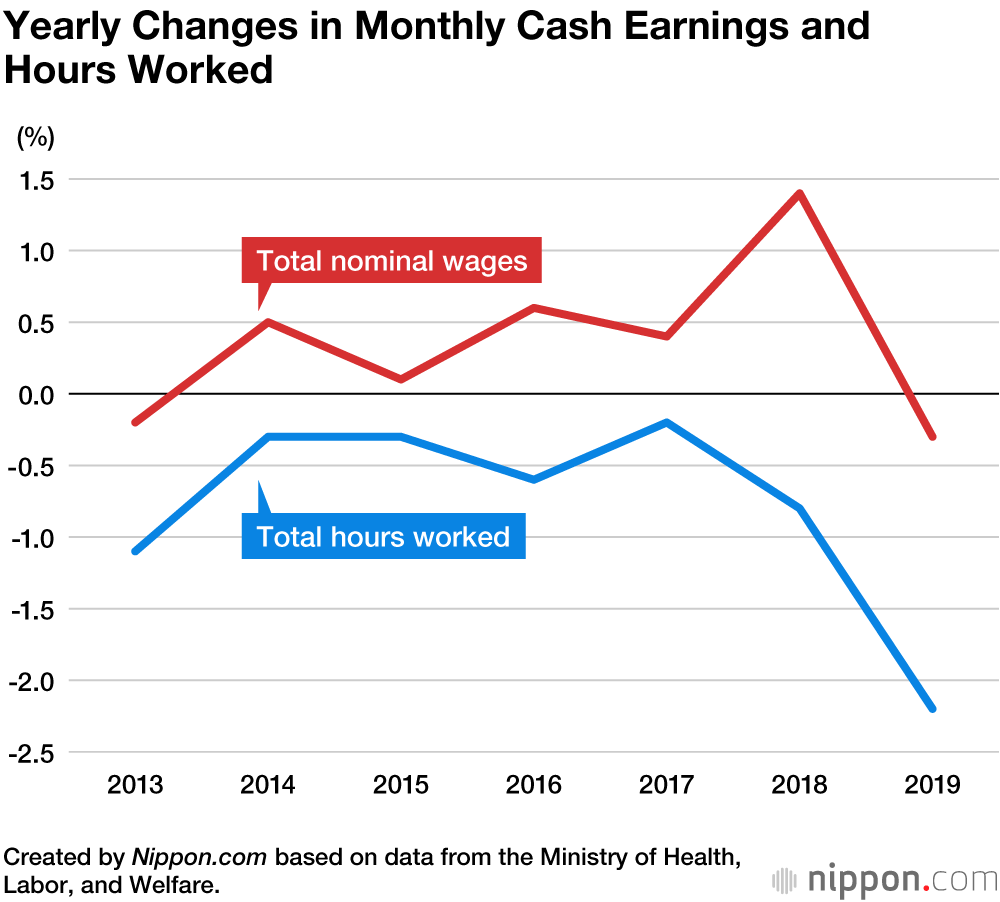
As Japanese Work Less, Nominal Wages See First Decline in Six Years
Economy Work- English
- 日本語
- 简体字
- 繁體字
- Français
- Español
- العربية
- Русский
Provisional results from monthly labor surveys performed by Japan’s Ministry of Health, Labor, and Welfare found that total nominal wages in 2019 averaged ¥322,689 per worker. This represents a 0.3% dip below 2018 levels, the first such decrease in six years. Average hours worked also declined by 2.2% to 139.1 hours per month. A cut in overtime by businesses as part of work-style reform efforts seems to be one factor in the drop in wages.
Scheduled earnings (base pay) declined 0.1% to ¥244,485. Again, this was the first decrease in five years. Nonscheduled earnings, which include those for overtime and work on days off, fell 0.8% to ¥19,740.
By industry, the highest-paid workers were in the electricity and gas sector, on ¥563,085 (up 1.1% on 2018), followed by information technology on ¥492,294 (down 1.4%). The lowest-paid sector was food and drink service at ¥125,263 (down 0.7%), followed by lifestyle-related services on ¥210,612 (up 1.9%).
Real wages, which are calculated by subtracting the consumer price index from nominal wages, also fell 0.9% year on year, after appreciating 0.2% the year before. Total average monthly hours break down into 128.5 scheduled hours (down 2.2%) and 10.6 non-scheduled hours (down 1.9%).
Wage growth in Japan is also slow compared with other major economies. According to statistics published by the Organization for Economic Cooperation and Development, the average Japanese annual wage in 2018 was the equivalent of $46,000—a mere 0.2% increase on the figure for 2000 ($45,000). This increase is significantly smaller than those recorded in the same period in the United States ($53,900 to 63,100), Germany ($43,300 to 49,800), and France ($37,100 to 44,500).
(Translated from Japanese. Banner photo: © Cora/Pixta)


